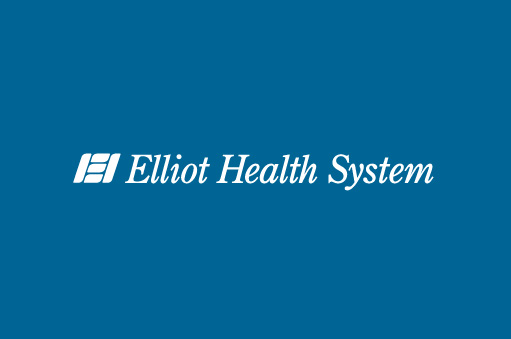Four Essential Career Search Tactics for Medical Residents

Your medical residency experience has provided you with a wide range of skills and knowledge. You have earned the leverage that comes with becoming an expert in your field. However, there are a set of vital skills that you will need to effectively use in the very near future if you want to find a position that fits you well. There are four essential career search tactics for medical residents:
1. Leverage the resources available to you
It is common for second and third year residents to become singularly focused on their daily duties, and justifiably so. When possible, you should take the opportunity to pass some of the time-consuming tasks related to a post-residency job search on to the resources your school, medical center, or associated organizations. Look to the associations and groups that specialize in your discipline. These groups have job boards that only include positions that fit your specialization and also can be essential networking environments.
2. Learn the Market (In-Hospital vs. Private Practice)
For medical residents, there are two main avenues for entry into the job market: via a private practice or via an in-hospital position. You may find it interesting that electing an in-hospital position may set you apart from your competition. According to a 2014 survey conducted by Merritt Hawkins, only 36% of third year residents chose “Hospital Employee” as the practice setting they would be most open to. The trend over the past decades has been for physicians to prefer small, privately run clinics. While there are many market forces that affecting this trend, being open to a, hospital setting may give you more options in the long run. Learn how a physician’s rights and duties differ between a hospital position and a private practice (partnership, solo, multi-specialty, single-specialty, out-patient clinic).
3. Narrow your Geographic Focus
It is important to determine early on in your search to clearly define the geographic location in which you want to practice, then take the time research hospitals and practices in that location. It is wasteful to spend any effort on finding hospitals or practices that match your profession aspirations but do not have a presence in the geographic location you are limited to. In the early stages of your research, you will also want to determine whether a large metropolitan area or a rural setting. By honestly, systematically defining your criteria, it will help narrow your geographic options.
4. Contact hospital recruiters directly
One advantageous career search tactics for Medical Residents is to leverage in-hospital recruiters. A hospital operates on a much larger scale than a small, private practice and will have a Human Resources division committed exclusively to recruiting talented physicians. The hospital recruiter can be an extremely helpful ally, especially in large network of hospital and clinics, and you can often learn of new openings at that hospital before they are made public. A hospital recruiter may have information about ongoing, large scale research projects (more likely at University teaching hospitals or medical centers). The research project may not yet be completed and therefore not yet publicized or otherwise made public.
—
Elliot Health System is interested is interested in physicians who want to be a part of a healthcare organization focused on quality and work-life balance. Find out what EHS has to offer you today.
![]()
Enjoy Outdoor Adventures in New Hampshire

New Hampshire is justly renowned for its natural beauty and for the quietude that it affords its residents. Nevertheless, the Granite State also provides a lot of outdoor adventure for anyone knowing where to look. Here are some suggestions for outdoor adventures in New Hampshire for the more intrepid folks out there:
Ski a little – or a lot! – They are not called the White Mountains for nothing. New Hampshire offers some of the best skiing “powder” in the East. Novices and families should consider the relatively easy “green circles” at Attitash Peak while experts can definitively test their skills on the “black diamond” runs of Wildcat. Don’t miss it – skiing the “Cat” is definitely a thrilling experience.
Visit motorcycle week in Laconia – Every year since 1923, a group of motorcycle enthusiasts has ridden the renowned Gypsy Tour of New Hampshire. Originally a rally for the hardcore motorcyclists of the early 20th century, this nine-day event is now attended by riders from every state in the nation. If interested, look for it to begin or end on Father’s Day.
Hike a portion of the Appalachian Trail – Running from its highest point at Grafton Notch in the Green Mountains of Maine to the foothills around the Connecticut River Valley of Vermont, the entirety of the Mahoosuc Trail in New Hampshire is certainly a hard road to travel for any but the most dedicated hikers. Still, portions of it can be navigated by the most unskilled novices on a day trip.
Flyfish the Great North Woods – As its name belies, this fishing spot is located in the most northern part of the state. Admittedly, it can get a little cold in the most northern reaches of the state but the fishing is truly phenomenal – so, wade in the river, stare intently at your line, and try to maintain a perfect drift. It doesn’t get any better than this.
Ride the rails of Mt. Washington – The Mount Washington cog railway is not your average train ride. Instead of a simple cross-country trip that traverses level terrain, this train ride ascends up the side of Mt. Washington for over a half-mile. The views are spectacular and the ride itself – the second steepest train ride in the world – is also thrilling especially if you are not comfortable with heights.
Take a cruise on Lake Winnipesaukee – Whether you choose a relatively tame “foliage tour” where you just take in the scenery or opt for a more romantic sunset cruise, there are any number of excellent cruise options in the New Hampshire area. In particular, the 70-Foot replica turn-of-the-century paddleboat, the Belle, plies the waters of the lake around the Wolfeboro area.
—
We are proponents of work-life balance and would love to tell you more about the area and the physician opportunities at Elliot Health System. If you’d like a visual list of these ideas that you can share with friends and family, download our free resource below.
![]()
EPN/EPS Network Update (3-25-16)
This network update goes over an EPN/S Governing Board Leadership Opportunity, Let No Woman Be Overlooked – A Message from Elliot Breast Health Center, EPIC Update and more.
Download the full Network Update PDF by clicking the button below.
Should Physicians Care About Online Medical Reviews?

They are posted on websites with names like “Vitals,” “Zocdoc” and “RateMDs.com.” They present content written by anonymous individuals who may or may not have any true knowledge about the topics on which they write. And they are widely read by patients across the country and likely in your hometown as well.
They are online physician reviews–and they may affect both your reputation and livelihood.
But, should you care about them?
That’s the question physicians across the country have been asking themselves lately. As with anything related to the internet, the answer depends on an array of variables: Who’s writing the reviews? How credible are they? Is anyone actually reading them?
At the end of the day, physicians probably shouldn’t care too much about online reviews. Here’s why:
Most patients aren’t reading them
Everyone is online these days–and they’re online nearly all the time. The proliferation of smartphones and tablets has made it easier than ever for people to find nearly immediate information about nearly anything.
Thankfully, most people aren’t searching for online medical reviews.
According to a 2014 study published in JAMA, fewer than one-fifth of people surveyed have used the internet to search for online medical reviews. People will look for movie and restaurant reviews, but when it comes to seeking out information about their physicians, most don’t look for online reviews.
Most patients are skeptical of online reviews
It’s a fact: Online medical reviews are largely unreliable. Physicians know it. Studies have said as much. And the public is largely aware of it, too.
Most internet users are savvy enough to understand that most people are entirely unqualified to accurately rate the quality of care they are receiving from their doctors. They understand that a lot of people use online reviews as a way to punish people who don’t give them the service they think they deserve–whether they feel wronged by a slow waitress or a doctor who won’t prescribe antibiotics for a virus.
Sure, they’ll read the reviews, but what they’re looking for is information about bed-side mannerisms, cleanliness of the clinic and whether or not the reviewer had a good overall experience. But they won’t likely make a decision about a doctor’s overall medical expertise based on an online review.
You can manipulate them
According to a paper published on the U.S. National Library of Medicine National Institutes of Health website, the quality of online medical reviews doesn’t matter as much as the quantity.
The paper explains that a randomized experiment found that, in general, patients had higher opinions of physicians who had more online reviews than they did about physicians with fewer online reviews.
This demonstrates how little patients care about the actual content of the reviews–and how easy it would be for physicians to manipulate the reviews in their favor. If quantity matters more than quality, then the reviews are basically useless, and all doctors need to do to enhance and protect their reputations is encourage patients to write more reviews.
And while the reviews apparently don’t even need to be positive, most patients who are writing reviews at your request will be inclined to write nice things about you. So manipulating the system works for physicians on both levels.
So don’t sweat online medical reviews. They are a new reality for nearly every physician, but they are likely not worth a lot of worry because few patients are reading them, they are widely viewed as unreliable and you can easily manipulate them in your favor.
—
Elliot Health System cares about their patients and their physicians. Do you want to be a part of EHS?
![]()
Start Your Outdoor Adventures in New England

Making a move into the heart of the Manchester, New Hampshire area has many appeals. There is a rich and vibrant history here to be experienced. There are plenty of outdoor experiences that are local or within a couple of hours distance. There is so much to offer in this region that it would be beyond description to fit it all here. But, here are some great outdoor adventures in New England to consider for those who have a great love of being active.
Rip Roaring Fun on a Zip Line
Imagine hanging free with your arms and legs stretched out as you glide through the air speeding along a cable at high speed. This exciting activity gets you above the tree canopy for a grand view of the countryside.
The Bretton Woods Canopy Tour is one of the most intensive and exciting zip line outdoor adventures in New England. This tour near Mount Washington is the longest zip line in New England, and it operates year round. Travel time from Manchester is about an hour and a half by car.
Skiing and Snowboarding Adventures
The New England states are the foundation of American skiing and the origin of snowboarding. There are many ski resorts throughout the entire region offering some of the best skiing in the whole country. So whether you want to make a drop down a black diamond chute or mosey along the bunny slope, there are plenty of locations for you to choose.
New Hampshire – Features ten excellent ski resorts upstate from Manchester.
Maine – Sports two resorts, which boast being open longer than all other New England resorts.
Vermont– Features not only the most 2000′ vertical slopes in the region but more miles of cross-country trails than any other ski region.
New York – While technically not considered part of New England, this part of upstate New York is not more than a few hours west of New Hampshire and offers 27 great resorts, including Lake Placid, home of the Winter Olympics in 1980.
Walking and Hiking New England
Perhaps the most relaxing way to experience some outdoor adventures in New England during time off is taking breathtaking walks or some trail hiking. Head up to the White Mountains and choose from a variety of scenic trails that vary in difficulty from easy to difficult.
For a little more adventure consider the breathtaking views along the Appalachian Trail. New Hampshire provides 161 miles of in-state trail with more miles above the tree line than anywhere else on this 2,200-mile trail that spans from Georgia to Maine.
Cycling Near Manchester
If you prefer some outdoor adventures in New England, that is closer to home then cycling the moderate difficulty 26 mile Rockingham Recreational Trail from Manchester to the village of Newfield.
If you want something a little easier and flat that the whole family can enjoy then consider taking a day along the Northern Rail Trail, which meanders, through farms and past ponds.
New England Beaches
Perhaps you would like to pursue a more relaxing day off by heading to the beaches along the New England coastline. Although New Hampshire has only 18 miles of shoreline along the coast, Hampton Beach State Park is a popular destination. Of course, there are many other beaches such as Martha’s Vinyard, Cape Cod National Seashore, or Nantucket.
Discover New England has many other outdoor activities to consider, making Manchester such a beautiful place to live and play, and working for Elliot Health System a unique opportunity for employment.
—
Are you still hungry for more adventure ideas?
![]()
Physicians: Are Medical Journals Still Relevant?
Many physicians have asked are medical journals still relevant. Advances in technology have meant that information is disseminated more broadly and isn’t just localized in medical journals anymore. What’s more, some medical journals have been sources of scandal, when it’s turned out that their information wasn’t as meticulously reviewed as they claimed.
As an up-and-coming medical professional, read on to learn about if it’s worth your while to subscribe to and keep up with medical journals.
The Advantage of Peer-Reviewed Journals
First, it’s important to point out that most academic journals aren’t like other media. Unlike blog posts, newspaper articles and so forth, a journal is peer-reviewed and therefore held to a stringent factual standard. If you have any questions, it’s generally best to seek out a peer-reviewed journal first.
That being said, not all journals are held to the same stringent standards, and there have been recent controversies about academic and medical journals that are very free about what they publish. Always check a journal’s credentials before you take it seriously, and look at factors like the size of a study, and who funded it.
Don’t (Necessarily) Trust Vendors
One issue that’s received increased attention from patient advocacy groups in recent years has been the power that representatives from drug and device companies have over physicians. It’s no mystery that especially for some specialties of medicine, doctors get plenty of freebies from companies and their representatives. Advocacy groups usually focus on things like vacations, fancy dinners and so forth, but it’s much more common that physicians receive information about the drug from the representative. While this doesn’t have the glamour of a trip to Tahiti, it can do just as good of a job of encouraging a busy doctor to prescribe the company’s drug or device.
Obviously, the FDA wouldn’t allow a drug to be put on the market if it weren’t safe. But especially if you’re considering off-label uses for a medication, or you aren’t sure if it’ll benefit your patients, it’s a good idea to get information from a source you know is unbiased. Going to a peer-reviewed medical journal for information about drug trials and other data will give you much more reliable information than you’d get by going off the company’s word alone.
Your Field Matters
Consider your field carefully when deciding if you need to subscribe to a medical journal. If you’re in a cutting-edge field where you need to keep up with current developments, then you may need to maintain a subscription to one or more major general journals.
But if you’re in a field where you work based on an established, time-tested basis of medical knowledge (such as many general practitioners), you may not need to keep up a subscription to a journal. If you have a patient with special needs, or if there’s some new and pressing medical development, then you can simply purchase articles as needed (or as you’re curious) through many online vendors.
Conclusion
Not all physicians need to keep up a subscription to a medical journal, these days. There’s plenty of information freely available online. However, depending on your scope of practice, you may be more interested in following developments in medical journals than other practitioners are.
Finally, if you ever find yourself in need of a specific piece of knowledge, don’t forget that you can buy individual articles online, as needed, without purchasing a whole journal. By keeping abreast of developments in your subfield generally, you can make determinations about what individual articles you need to read, rather than bogging yourself down with reading all relevant journals.
—
What are your thoughts on medical journals and their relevance to modern physicians? Send us a note!
![]()
EPN/EPS Network Update (3-18-16)
This network update goes over EPN/S Governing Board Leadership Opportunity, Patient Experience, Provider Alignment and more.
Download the full Network Update PDF by clicking the button below.
Why a Community Hospital is the Right Place to Practice Medicine

Article Written by “Dr Deane” Waldman, MD MBA and Curated by Jill Stagner
Horace Greeley is often credited with admonishing adventurous Americans, “Go West, young man, Go West!” A modern healthcare paraphrase might be, “Go Community, Young Doctor—You Will Be Glad You Did!”
Physicians finished with training have many options where to practice, but limited understanding of where to achieve the best balance. The answer is a community hospital.
Doctors from generalists to subspecialists all seek a proper relationship between professional life and personal life. The more they work, the better they do financially and the more time they have with patients. But…the more they work, the less time they have with family and the fewer opportunities to enjoy the benefits of those financial rewards.
Community hospital practice offers the optimal balance of personal and professional.
Start with respect. To the 1000-bed University hospital, the doctor is a fungible commodity. To patients, doctors are faceless, nameless impersonal entities among a myriad of providers. Doctors have to park four blocks away from the hospital and have to pay for the privilege.
At a 75-bed community hospital, the doctor has a parking space near the Doctors’ Entrance. At one community hospital, hospital staff used to wash all the cars in the doctors’ parking lot, automatically. Sadly, they stopped doing this years ago but to this day the food in that community hospital’s doctor’s dining room is a three-star restaurant—the antithesis of hospital cafeteria food.
At the community hospital, everyone knows the doctor’s name (and other personal details) from the CEO and CMO to the patients. They care for and about the doctor—make no mistake. At the University Hospital, they couldn’t care less.
Financially, doctors do better at a community hospital. The doctor is a prized asset. At the major medical center, doctors are simply one more cog in a massive bureaucratic machine.
Being a valued person at the community hospital carries another advantage of which the newbie MD may not be aware: protection. There are a host of federal mandates that govern physicians’ professional life from reporting functions to medical liability. Large, impersonal medical centers simply pass on all these onerous, unnecessary duties. When lawsuits come, hospital Risk Management is concerned with the institution, not the individual doctor.
The community hospital wants to make its doctors happy and to keep them there. Thus, they try to relieve to reduce the hassle as much as they can and defend their doctors vigorously when the medical negligence lawyer comes calling.
Finally, community hospitals are outside of city center congestion or frankly rural. The lifestyle reflects that difference. Back in Chicago, a physician colleague and friend wanted the advantages of suburban living but practiced in a huge medical center in the downtown area. He had to plan his daily commute—90 minutes on a good day—around the traffic patterns and thus had to leave his beautiful home in Northfield at 5:30AM to minimize the driving time and the stop-start traffic he faced.
True, living near a community hospital makes it harder to use the amenities of the big city, but my friend in Northfield had the same disadvantage along with wasting all the time in his car that he can’t spend with family or with patients.
Probably the greatest advantage of choosing a community hospital is connection with patients. The primary reason that people become doctors is the psychic reward. Doctors (just like nurses) feel good about themselves when they help others. The more time and closeness a care provider has with patients, the greater one’s professional satisfaction. The place to get the maximum psychic reward is a community hospital.
–
Elliot Health System is a community hospital. If you’d like to learn more about opportunities within their system, click the button below!
![]()
5 Best iPad Apps for Physicians

There is no denying that mobile technology has changed the way business is done in the world of healthcare, and continues to do so at a rapid pace – particularly for physicians on many levels, from education to reference to visual aid to personal health monitoring. Nowadays, you are able to make an appointment, fill a prescription, search through a database, tour a hospital virtually, keep in touch with friends and family, order delivery and much, much more, all with just a few flicks on a screen! The same ease of use we are all becoming accustomed to is also extending to doctors and patients inside hospitals. For example, one of the more popular uses of mobile devices is as a patient education tool.
But, there are a ton of apps out there, medical and otherwise. So, how do you know which ones are worth downloading and using, as a physician? We have put together a list of the 5 best iPad apps for physicians. Check it out!
The Top Five Medical iPad Apps for Physicians
- My Chart Bedside – FREE ios ANDROID. My Chart Bedside is a useful tool for those who may need help getting their point across. This app gives doctors an effective way to communicate with their patients and also provides useful information regarding their care plan. This allows patients to feel more involved in their care. According to Physician’s Practice, “If you are working with a customer who is a little more educated on what you are trying to help them with, obviously it helps the process along. Patients are able to ask questions that they didn’t necessarily have the information to ask, in the past.
- Medicode – FREE ios ANDROID. This very handy app for the iPhone and iPad is a life support reference tool that you simply must download and utilize if you are a physician, because you will never be left without a digital backup of your important printed-paper resources. According to Practice Link, the Medicode app: “presents information as an overview of an entire algorithm or as a step-by-step walk through in using the algorithm in an emergency.”
- drawMD – FREE ios ANDROID. According to imedicalapps drawMD, “uses your mobile device to enhance doctor-patient communication by offering interactive visual guides as a new tool for explaining complex issues and possible medical and surgical solutions.”
- BlackBag Medical Resources – FREE ios .Medical news, tools, and resources for health professionals across multiple specialties and therapeutic areas – what’s not to like? This is a “handy app,” says the American Pharmacists Association.
- Lexi-Comp. This is the only app on the list you will have to pay for. But, it’s worth it. This is a suite of mobile app databases, available only if you have an iPad. According to Lexi-Comp,“the databases and packages feature multiple indexes to expedite searching searching and advanced navigation to save valuable time. Updates to our content are available daily, so you always have timely clinical content at your fingertips.”
What sorts of iPad applications are you using as a physician? What sort of technology do you wish you could find? Elliot Health System is always looking to learn more about what physicians need from technology in and outside of the workplace! Tell us what you think on Facebook or Twitter today!
Find Out More About Elliot Health Systems
Elliot Health System of Manchester, New Hampshire is a full-service community resource that serves the southern New Hampshire region. We are made up of doctor’s offices, a regional trauma center, a rehabilitation services, state-of-the-art neonatal and many other services. We are changing the way physicians and their families think about working in the medical profession and utilizing mobile devices is helping aid this transition. Check out our site to learn more about Elliot Health System or visit our facility anytime!
![]()
Hospital Employment vs. Private Practice: Pros and Cons

For any physician, making a decision between hospital employment vs. private practice takes a little thought. Each employment setting has both benefits and disadvantages, so you’ll want to determine which of the two offers more of the former in your situation. For example, if you have significant debt from student loans, your salary may take precedence over other factors. Your choice basically boils down to finances, autonomy and administrative work.
Money Matters
Your potential starting salary in private practice may be less than what you could earn by working for a hospital, because a private practice makes its money on net collections. It takes time to build up significant income. Another consideration: when you work for a hospital, you’ll have to go through regular salary and contract negotiations. In addition to salary, you should consider other potential benefits like retirement, health insurance and the operational costs of private practice. If you choose a non-profit hospital in a medically underserved area, you may be eligible for loan forgiveness, which can make a significant contribution to your personal bottom line. Other issues: relocation assistance or a sign-on bonus.
Autonomy
Let’s face it — when you work for yourself, you call all the shots. That includes both patient care and operational management decisions. Working for a group physician practice means you’ll have more of a voice than working for a hospital. For some physicians, not having to make some of those decisions sounds like a terrific idea. But it can also mean that you have to live with the organization’s EMR or clinical practice guidelines. The support staff you work with report to the hospital, not you. If the organization adopts new practice or quality metrics, you’ll need to meet them even if you don’t agree with them.
Operational Aspects
As the boss, or one of the bosses, you’ll have to worry about things like payroll, human resource decisions, payor contracts, marketing and capital outlays. If you and your partners own your office building, there will be mortgage payments and maintenance issues. When you work for a hospital, someone else handles all those details. On the down side, it could mean you have to share an office or support staff, and if the organization decides to change a service line in which you practice, you may not be able to influence the decisions.
Other Considerations
One thing a hospital offers that you don’t usually find in private practice is the opportunity for shift work. Say you have young children, and want to adjust your work time to coincide with their schedules, or at least minimize conflicts. In a hospital specialty like emergency medicine or as a hospitalist, shift work is more likely to be an option. Shift work may also mean that you don’t have to take call.
The Bottom Line
Before you leap into either hospital employment or private practice, do your homework. Talk to colleagues on both sides of the equation, including recent graduates and experienced physicians. Ideally, find a few who have experience in both environments. Become familiar with the legislative and quality incentives looming in the future and consider how they may affect your practice style in both environments; remember, hospitals will be held more accountable for many of these issues. Consider potential reimbursement trends, such as a switch from direct production to ancillary services. Identify your negotiating strengths. For example, primary care physicians may have a lot of leverage right now because of shortages and high demand in that specialty.
![]()














Recent Comments